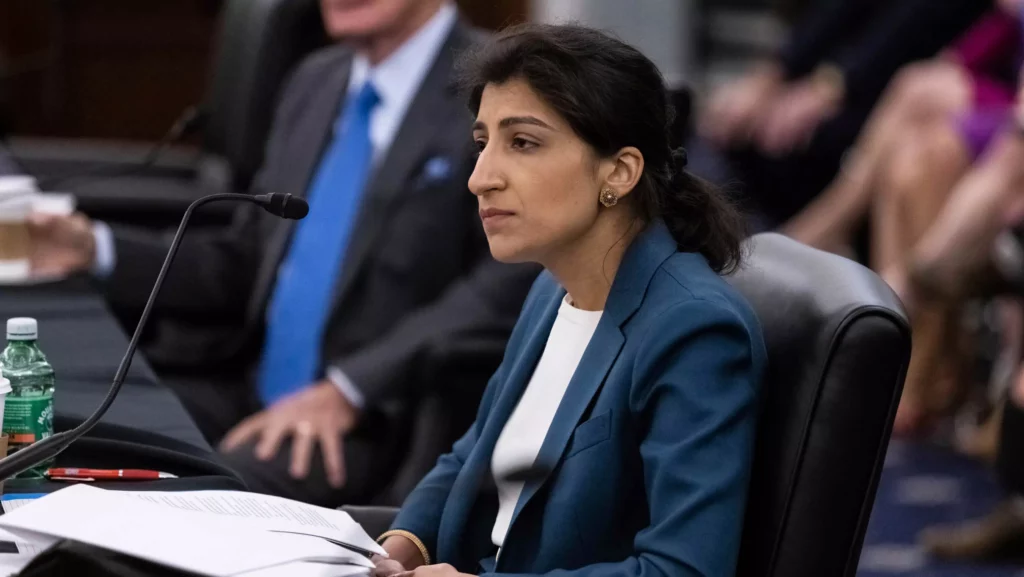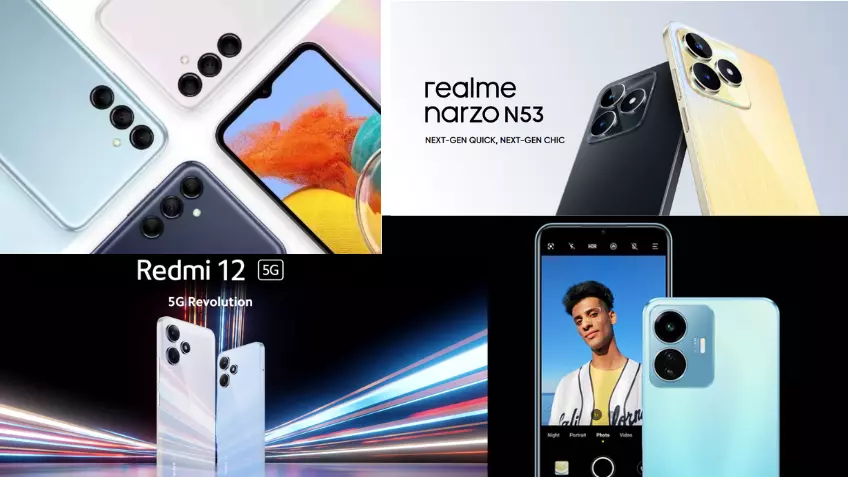The challenge Lina Khan faces in her attempt to stop Microsoft’s Activision partnership.

Ms. Lina Khan, Chair Of Federal Trade Commission.
Ms. Khan, the chair of the Federal Trade Commission, has staked an ambitious trustbusting agenda on a case that may be difficult to win.

The head of the Federal Trade Commission, Lina Khan, has stated that the organisation intends to “enforce the antitrust rules to guarantee maximal efficacy,” ushering in a new era of breaking the trust of America’s corporate goliaths.
Ms. Khan has now bet her ambitious agenda on a case that might be very difficult for the agency to prevail in.
The largest consumer technology transaction in twenty years, the F.T.C. filed a lawsuit on Thursday to stop Microsoft’s $69 billion acquisition of video game producer Activision. The complaint, which was the most daring in a recent spate of actions by the agency to stop other, smaller agreements in the interest of competition, served to underline Ms. Khan’s remarks about curbing corporate dominance.
However, experts said Ms. Khan and the FTC would encounter challenges in their efforts to block the Microsoft-Activision merger. This is due to the fact that courts have been reluctant to reject challenges to so-called vertical mergers, when the two companies do not directly compete. In this instance, Microsoft is most recognised in the gaming industry for creating the Xbox console, whereas Activision is a significant publisher of popular games like Call of Duty.

Additionally, Microsoft has made a number of accommodations in order to allay regulatory concerns about purchasing Activision, including a promise to make Call of Duty available on platforms other than Xbox, such as Sony’s PlayStation and Nintendo’s Switch. Some judges may find these concessions to be persuasive.
Bill Baer, who oversaw the antitrust division of the Justice Department under the Obama administration and has previously represented Sony in private practise, said that the lawsuit against the commission would be difficult for the commission to win because vertical challenges typically face an uphill battle.
The case is taking on the appearance of a test for Ms. Khan’s assertion that the F.T.C. needs to be more active in order to restrain the influence of corporate titans in the modern economy, especially the largest tech corporations. She was chosen by President Biden to head the agency, and she has made it clear that she intends to file more lawsuits rather than reach settlements with businesses in order to stretch the limits of antitrust law and resume the type of trustbusting not seen in a century.
Since Ms. Khan took over the FTC in June last year, the agency has employed novel or little-used arguments to challenge deals. It also filed a lawsuit to prevent the merger of chipmakers Nvidia and Arm, another deal in which the companies were not direct competitors. In July, the agency sued to stop Meta, Facebook’s parent company, from buying the virtual reality start-up Within, in a case that hinges on the uncommon argument that the deal would harm competition in a market that hasn’t yet developed.
Microsoft has pledged to defend the Activision acquisition against the FTC’s legal action. Microsoft’s president, Brad Smith, declared on Thursday that the business had “full confidence in our argument” and appreciated the chance to make it in court. Microsoft said on Friday that it thinks the agreement will boost competition and give players and game creators greater chances.
A spokesman for the F.T.C. declined to comment on the situation.
Historically, regulators have concentrated their efforts on opposing mergers that bring together two direct competitors. They have a mixed track record when it comes to vertical merger litigation.
The Department of Justice attempted to stop AT&T’s $85.4 billion acquisition of Time Warner in 2017, which resulted in the largest and bloodiest recent dispute over a vertical merger. In the end, a federal court approved the merger because he was sceptical that it would hurt media and telecoms competition.
This year, a judge rejected the Federal Trade Commission’s attempt to prevent a gene-sequencing company from acquiring the producer of a cancer blood test, finding that the evidence did not establish that the gene-sequencing company would have an incentive to harm competitors of the blood-testing product following the acquisition.
But Ms. Khan has led an initiative to revise the standards for evaluating such transactions, working in tandem with her counterpart at the Justice Department.
The F.T.C. has generally argued that the Xbox and PlayStation consoles compete against one another and not against other video game platforms like the Nintendo Switch in its lawsuit against Microsoft’s Activision purchase. In considering the lawsuit, the courts would give careful consideration to whether that definition was accurate, according to Barry Nigro, a former employee of the Obama administration’s antitrust section of the Justice Department.
The FTC claimed in its lawsuit that since Activision’s games were “very crucial” to video game console success, Microsoft would have the power and motive to utilise its control over them to keep them out of the hands of rival developers or to lower their quality.
The agency deemed Call of Duty, a first-person shooter game, “one of the most successful console gaming franchises ever,” to be the most significant title in the case. According to Sony, if Microsoft acquired Call of Duty, it might prevent the game from being released on the PlayStation, forcing players to the Xbox.
Microsoft has stated time and time again that it would not be logical to remove Call of Duty from the PlayStation, where the majority of players are. Microsoft and Nintendo have agreed to a 10-year deal to make the game available on the Switch, and Microsoft has claimed to have offered Sony a comparable arrangement.
The FTC, however, disregarded Microsoft’s assurances. It referred to the $7.5 billion acquisition of ZeniMax by Microsoft last year, the parent company of eight game studios responsible for blockbuster titles like The Elder Scrolls, Doom, and Fallout.
In its complaint, the agency stated that Microsoft had “assured” European regulators looking into the ZeniMax purchase that it would not have a motivation to withhold ZeniMax games from competing consoles. However, Microsoft then said that the Xbox and Windows desktops would be the primary platforms for the release of big new games from ZeniMax’s studios.
The agency claimed in its lawsuit that this should “throw additional doubt” on Microsoft’s claims that Call of Duty would continue to be available on the PlayStation.
Microsoft has stated that a current series like Call of Duty cannot be compared to these forthcoming ZeniMax titles. Due to the fact that the corporation made no promises to the European Commission, it has claimed that the FTC is misrepresenting what transpired, citing European papers in which it stated that it would make a decision how to release games on a “case-by-case basis.”
Microsoft offered to make enforceable, legally binding guarantees to maintain Call of Duty on PlayStation in meetings with the agency and commissioners on Wednesday, according to a person with direct knowledge of the discussions. The person claimed that the commissioners did not appear eager to accept a settlement.
In regards to discussions it had with Microsoft prior to the case, the F.T.C. declined to comment.
Regulators like Ms. Khan no longer favour these kinds of arrangements. According to her, commitments made by businesses to regulators are rarely carried through and fail to solve the fundamental issues of businesses growing larger and using their position to hinder competition.
In some recent antitrust cases, judges have used settlement offers as justification for approving mergers over regulators’ objections. According to Daniel Francis, an assistant professor of law at New York University and a former F.T.C. officer, courts have been “surprisingly solicitous about the kind of things that Microsoft has supplied here.”
The FTC complaint stated that the case’s initial hearing will take place in August.




